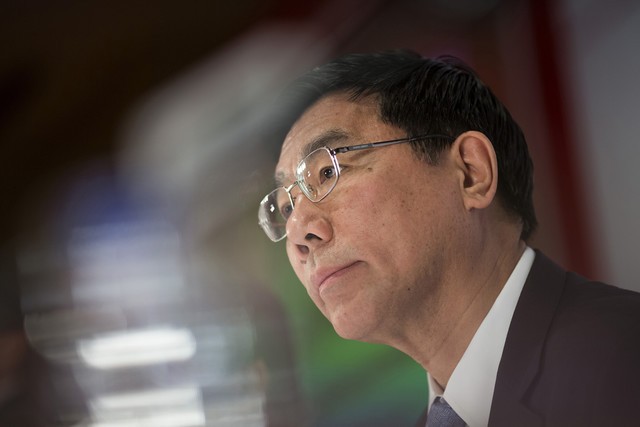Apollo s Marc Rowan Danger Signs Are There for a Future Credit Crisis
Post on: 31 Март, 2015 No Comment

The debt markets are open wide open.
U.S. high-yield bond issuance hit $324 billion in 2013, just shy of a record $345 billion in 2012.
Easy-money policies by the Federal Reserve and other central banks around the world have provided a sea of liquidity, and companies are struggling to meet investors’ seemingly insatiable credit risk appetite.
Demand for junk bonds is soaring, as persistently low rates boost the appeal of higher-yielding (and riskier) debt.
Another disturbing trend is the rise in covenant-lite loan issuance. Regular, high-yield loans force borrowers to maintain their debt below certain ratios of cash flow, but covenant-lite loans come with less stringent restrictions.
As you can see below, cov-lite loan volume is in the stratosphere:
The financial markets seem to have a very short memory.
Were back to doing exactly the same things that were done in the credit markets in the crisis, said Marc Rowan, co-founder of Apollo Global Management (APO ).
Rowan spoke at the Milken Institute Global Conference this week and cautioned, All the danger signs are there of a future crisis.
Of course, just because lunacy has returned to the credit markets, it doesnt mean that disaster is imminent.
Still, many investors are planning for just that by betting against the iShares iBoxx High-Yield Corporate Bond ETF (HYG ). The following chart shows the shares held short as a percentage of total shares outstanding for HYG:
These record-high short positions (either from dealers hedging themselves as a result of retail put option buying or outright shorts) represent a large, bearish view on this ETF and high-yield credit, in general.
Many investors are making a big mistake
Now, weve been wary of the junk bond bonanza. and continue to think that high-yield debt doesnt offer a favorable risk-reward with yields near historic lows. But that doesnt mean we have to actively bet on a decline in high-yield bond prices.
In fact, shorting HYG in particular is not advisable, considering it yields 5.9% and you have to pay dividends when youre engaged in short sales.
Instead, we want to get paid to wait for the decline to happen, yet ensure that another debt crisis wont eviscerate our portfolios.
Invest in Good Memories
The best way to do this is to align ourselves with investment managers, like Marc Rowan, who are skeptical of whats currently going on in the credit markets.
Rowans Apollo Global Management LLC is a contrarian, value-oriented asset management firm with expertise in private equity, credit and real estate. The firm raises, invests and manages funds on behalf of some of the worlds most prominent institutional investors.
APO, which is structured as a partnership, has a trailing 12-month dividend yield of 14.7%. Although this figure will likely decline, the stock should still offer a high yield relative to the entire income investment universe.
APO shareholders benefit from the fees generated by the firms assets under management, which last totaled around $160 billion.
If Apollo successfully navigates the future crisis which many investment managers won’t even see coming then Apollos clients will benefit.
After all, if institutional investors have willfully forgotten about the types of activity that exacerbated the credit crisis, then, as Rowan points out, I think our job is to step wisely and avoid that.
The Federal Reserve is very adept at driving up the price of financial assets and spurring excessive debt growth.
The seeds of the next crisis are being sown. Apollo and its management are making sure theyre ready and we should do the same.
Safe (and high-yield) investing,
Alan Gula, CFA
As Wall Street Daily’s Chief Income Analyst, Alan is continually and fervently analyzing the financial markets. He draws upon a wide range of finance experience, including investment banking, research and trading. Learn More >>














